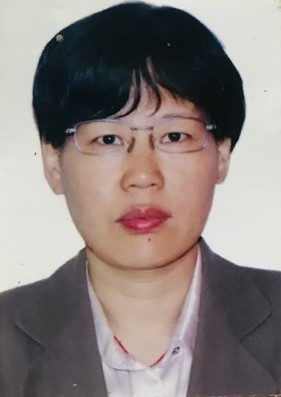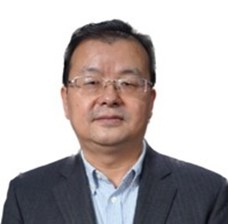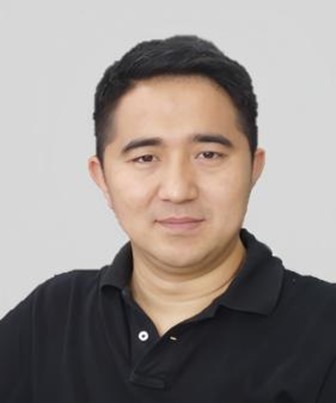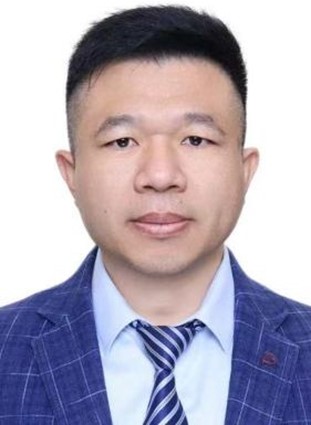Learning and Evolution of Intelligent Unmanned Systems
Chairs: Mingying Wei (Beijing Institute of Electronic System Engineering, China)
Guanghui Sun (Harbin Institute of Technology, China)
Lecturers: Mingying Wei (Beijing Institute of Electronic System Engineering, China)
Jianru Xue (Xi’an Jiaotong University, China)
Wei Zhang (Shandong University, China)
Zhonghua Miao (Shanghai University, China)

Speaker: Mingying Wei (Beijing Institute of Electronic System Engineering, China)
Title: Key Technologies for Intelligent Cooperative Interception by Defensive Vehicles
Abstract: Focusing on the problem of cooperative interception by defensive vehicles, this report systematically reviews the development history and key challenges in the field. It presents the team's recent research progress in several areas, including rapid engagement in large airspace, multi-source information fusion across air, space, ground, and sea domains, guidance in underactuated large-scale cooperative scenarios, and terminal cooperative guidance based on multi-agent game theory. Finally, it offers a forward-looking perspective on game-theoretic cooperative guidance and control technologies for defensive vehicles.
Mingying Wei, Research Fellow of the Beijing Institute of Electronic System Engineering, is the Director of the State Key Laboratory of Complex Product Intelligent Manufacturing System Technology. With over 30 years of experience, she has been engaged in the design of defensive missile weapon systems and research on guidance and control technologies. She serves as the Chief Expert of a key national project in an emerging innovative field.
Dr. Wei is a member of the 14th National Committee of the Chinese People's Political Consultative Conference, a recipient of the National High-level Talent Program for Technological Innovation, and one of the inaugural Top Talents recognized by the State-owned Assets Supervision and Administration Commission.
Dr. Wei has received numerous prestigious awards, including one Second Prize of the State Technological Invention Award (as the first contributor), one Special Prize and two Second Prizes of the State Scientific and Technological Progress Award. In addition, she has been honored with a total of seven Defense Science and Technology Progress and Invention Awards.
Dr. Wei has authored two monographs and holds over 70 authorized invention patents. Her outstanding contributions have been recognized with the Qian Xuesen Outstanding Contribution Award and the National March 8th Red-Banner Pacesetter Award.

Speaker: Jianru Xue (Xi’an Jiaotong University, China)
Title: Towards Safe Learning of Human-Inspired Driving Strategies
Abstract: In recent years, autonomous driving vehilces can be found in many fields,how to achieve human-like level autonomous behavior generation still faces great challenging problems. This talk is based on our research experience over a decade. I will talk about autonomous behavior generation of intelligent physical agent from the perspective of machine learning, and will cover two core topics, long-term situation prediction and policy learning, as well as latest progress we have made.
Jianru Xue, Professor of Xi’an Jiaotong University. His research interests include pattern theory and machine learning, and autonomous driving and human-machine hybrid augmented intelligence. He and his team won National Natural Science Award (second class) in 2016,National Technology Invention Award in 2007,the IEEE ITSS Institute Lead Award in 2014, and the best application paper award in Asian Conference on Computer Vision 2012. He has published 100+ papers in top cited journals and conferences. He had severed as editors of Frontier of Information Technology& Electronic Engineering, Visual Intelligence, Acta Automatica Sinica, Robot, etc.

Speaker: Wei Zhang (Shandong University, China)
Title: Research and Advances in Large Language Model-Driven Robot Learning
Abstract: Robot learning aims to enhance intelligent decision-making and autonomous learning capabilities, enabling robots to continuously acquire task-relevant knowledge and patterns from data and experience, thereby progressively mastering task skills. In recent years, the rapid development of foundation models has brought new perspectives to robot learning, making the integration of "foundation models + robotics" a rising research frontier in the fields of artificial intelligence and robotics. This report highlights the research progress of our group in collaborative learning for robotic perception and decision-making, as well as a series of cutting-edge explorations centered around the "foundation model + robotics" paradigm.
Wei Zhang is a Professor and Ph.D. supervisor at Shandong University, primarily engaged in research on robot learning. He has been selected for a national-level talent program for leading scientists. In recent years, he has led major and key projects funded by the National Natural Science Foundation of China, the National Key R&D Program, and major provincial initiatives in Shandong.
His representative papers, as first or corresponding author, have been published in top-tier journals and conferences in artificial intelligence and robotics, including TPAMI, TRO, IJCV, TIP, NeurIPS, CVPR, ICCV, IJCAI, AAAI, CoRL, and ICRA. He holds over 60 authorized invention patents across China, the United States, and Japan, and has received more than 10 academic awards at the provincial, ministerial, and international levels.

Speaker: Zhonghua Miao (Shanghai University, China)
Title: Swarm Intelligence Theory and Technologies for Multi-Agricultural Robot Regional Cooperation
Abstract: The arrival of the era of smart agriculture has gradually replaced dispersed farmland plots with large-scale operation farms. Cluster agricultural robots are the mainstream direction of production and industrial transformation for future agricultural development. This report mainly introduces the theoretical and technological research progress on intelligent collaboration of multi robot regional operation group, which is his leading work in Shanghai University's intelligent equipment and robot team recently. It mainly focuses on the huge challenges brought by cross dimensional, cross attribute, and cross level collaborative operation in the complex open environment of future smart farms. Starting from the common characteristics of self-organizing clustering of groups, the studies are on the clustering evolution mechanism of cluster agricultural robot regional operation, which proposes an intelligent swarm algorithm for multi-objective regional collaborative operation and distributed formation control, and the relevant achievements have been verified and applied in practical scenarios. Further evaluates and prospect on the development trend of cross domain unmanned system collaborative operation in future smart farms are also presented.
Zhonghua Miao, Changjiang Scholar Distinguished Professor of the Ministry of Education, Expert with Special Government Allowance from the State Council, Vice Dean of the School of Mechanical and Electrical Engineering and Automation at Shanghai University, Head of the Key Innovation Team for "Intelligent Autonomous System Cross Domain Collaboration and Decision making" of the Shanghai Municipal Education Commission, and Leader of the Robot Direction in the National First Class Discipline of Mechanical Engineering. He has been engaged in research on intelligent equipment and robot technology, achieved a series of results in the fields of autonomous operation control of intelligent agricultural machinery equipment, agricultural robots, underwater robots, and multi machine collaborative operation. He has hosted 8 national key research and development projects, major agricultural science and technology projects, and national natural science foundation projects. He has hosted more than 10 provincial and ministerial level projects, including major natural science projects, key basic research projects, and key projects for promoting agriculture through science and technology in Shanghai. He has published over 180 SCI/EI papers in Automation, IEEE/ASME/ACM Trans, Computers and Electronics in Agriculture, Precision Agriculture, and Chinese Science.